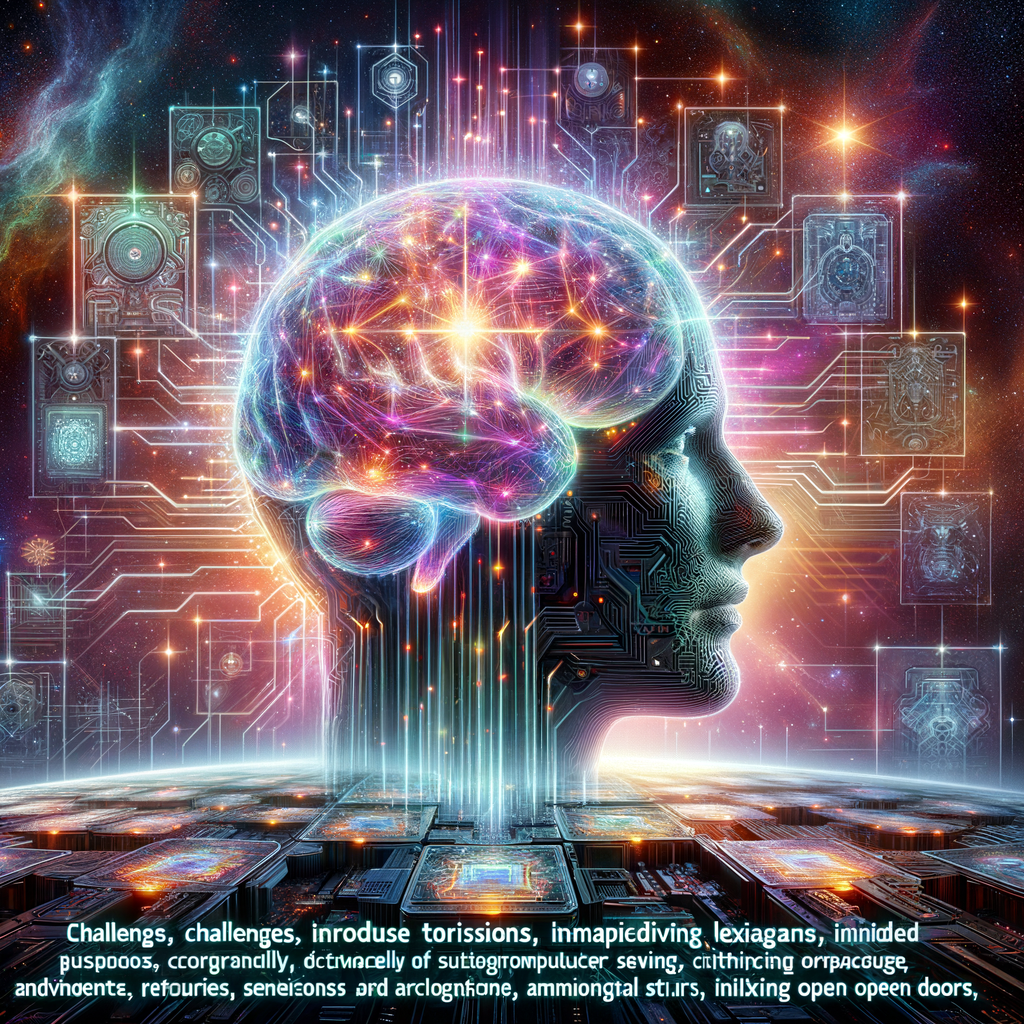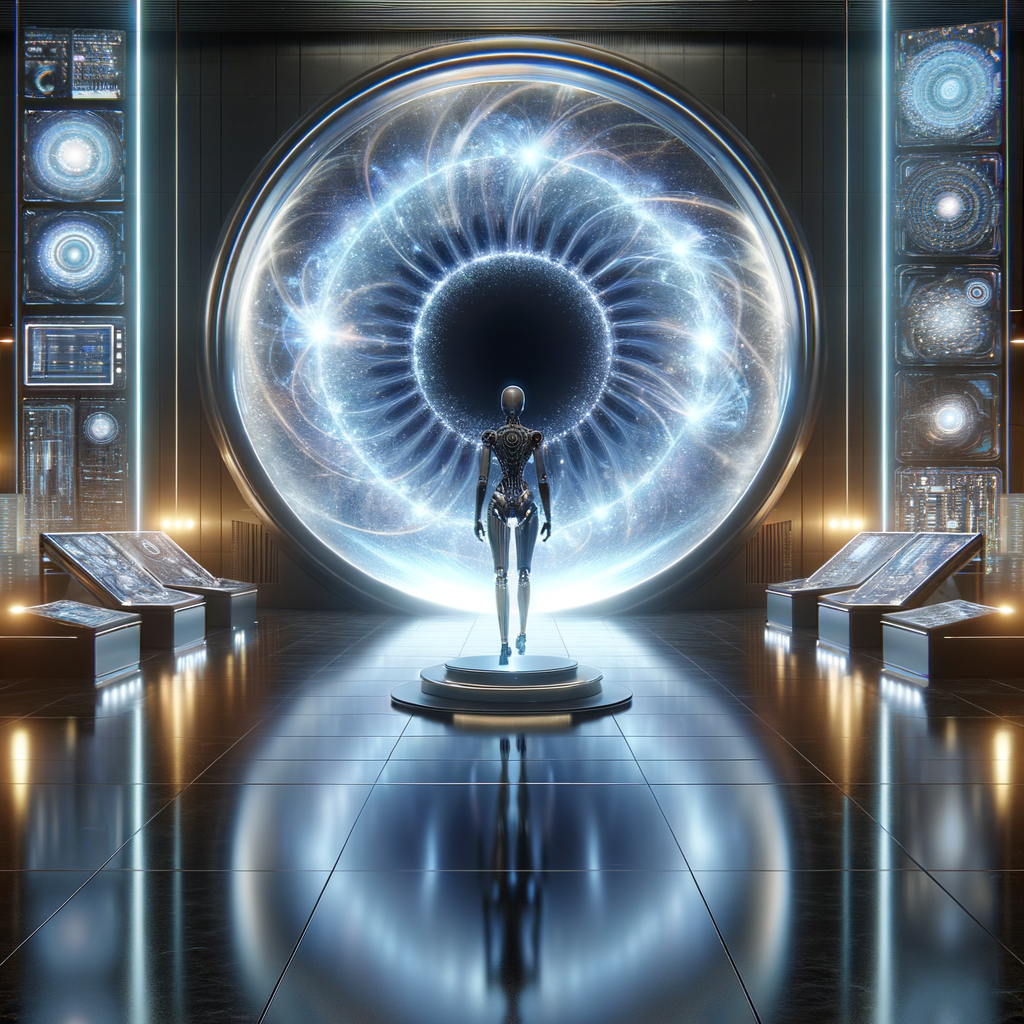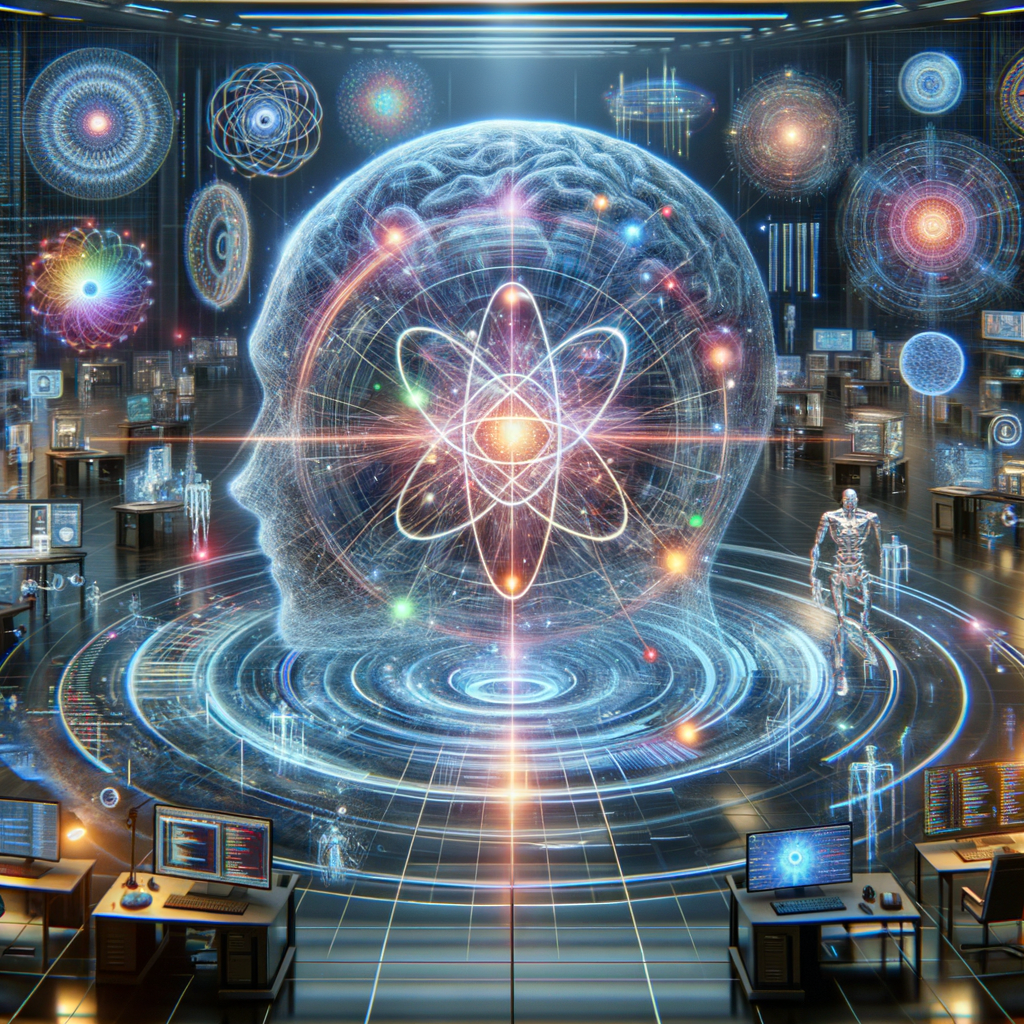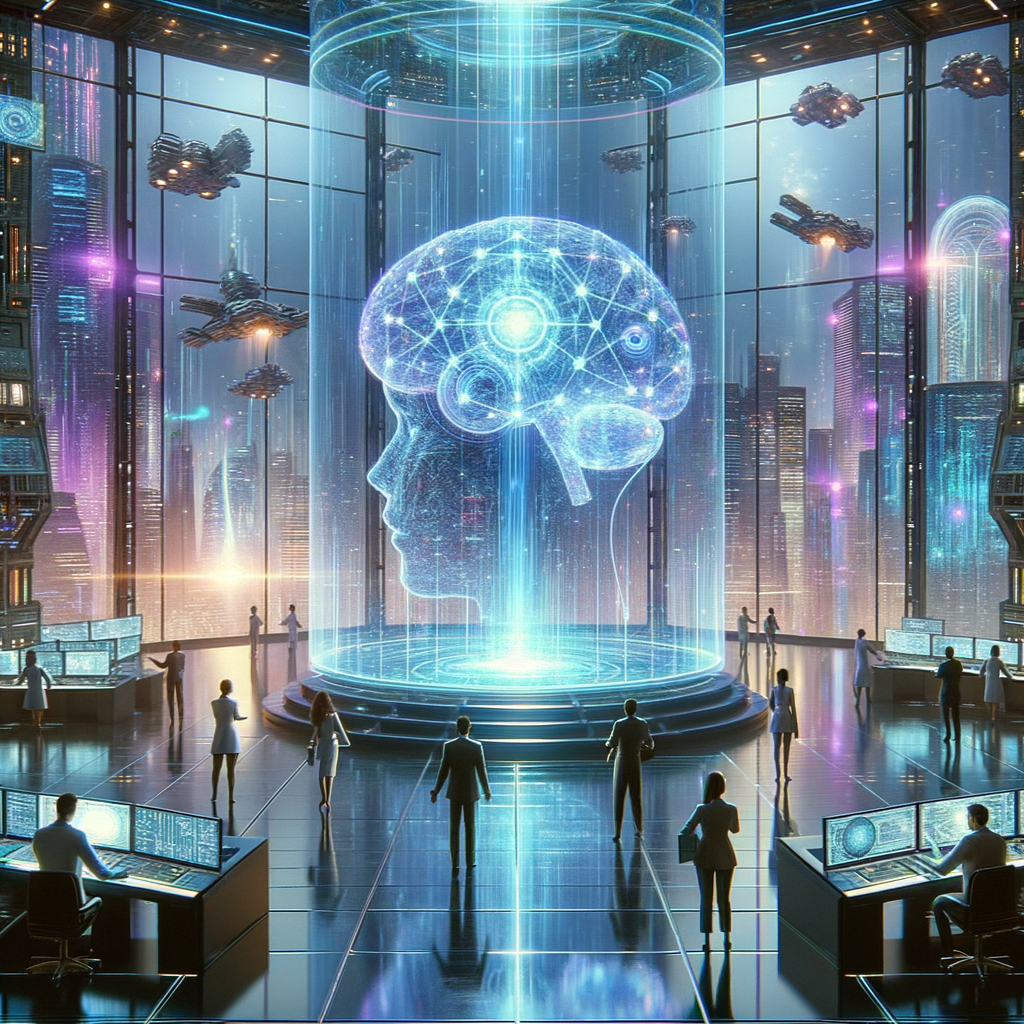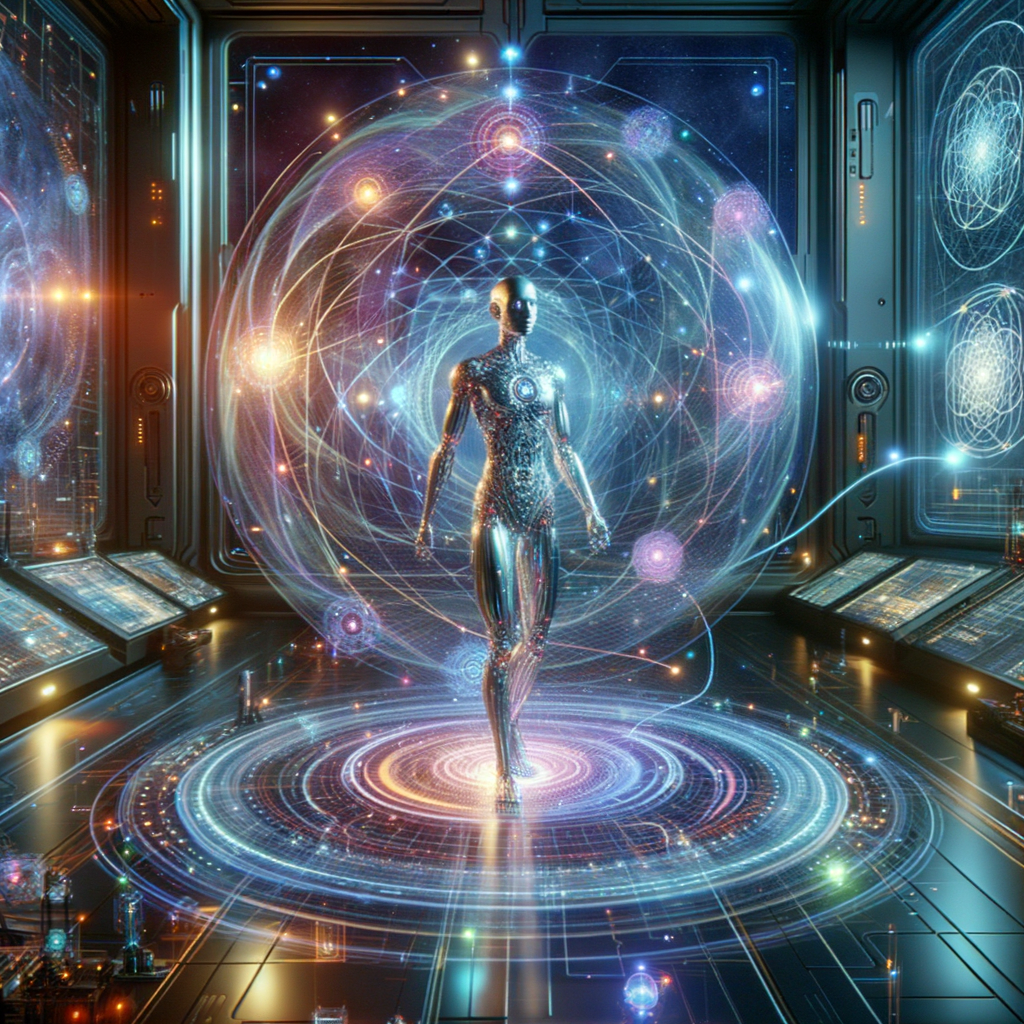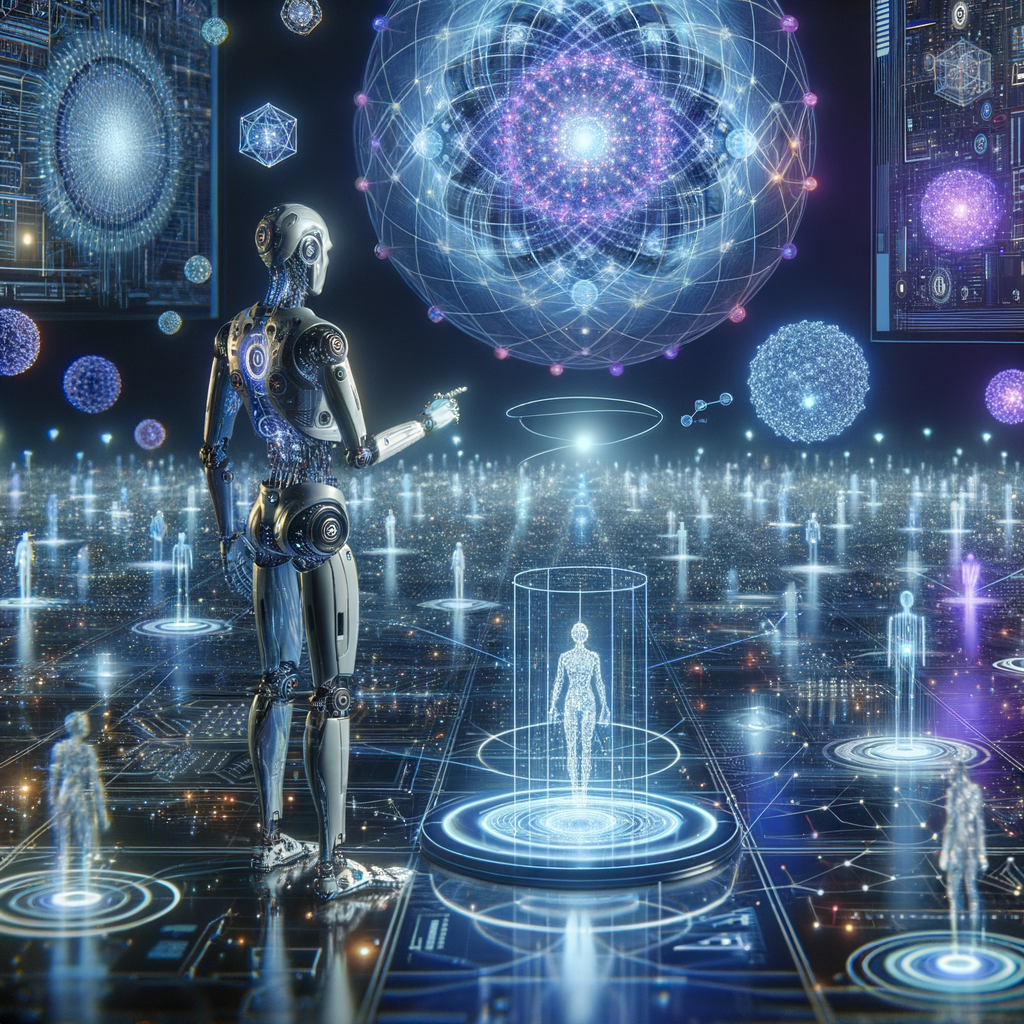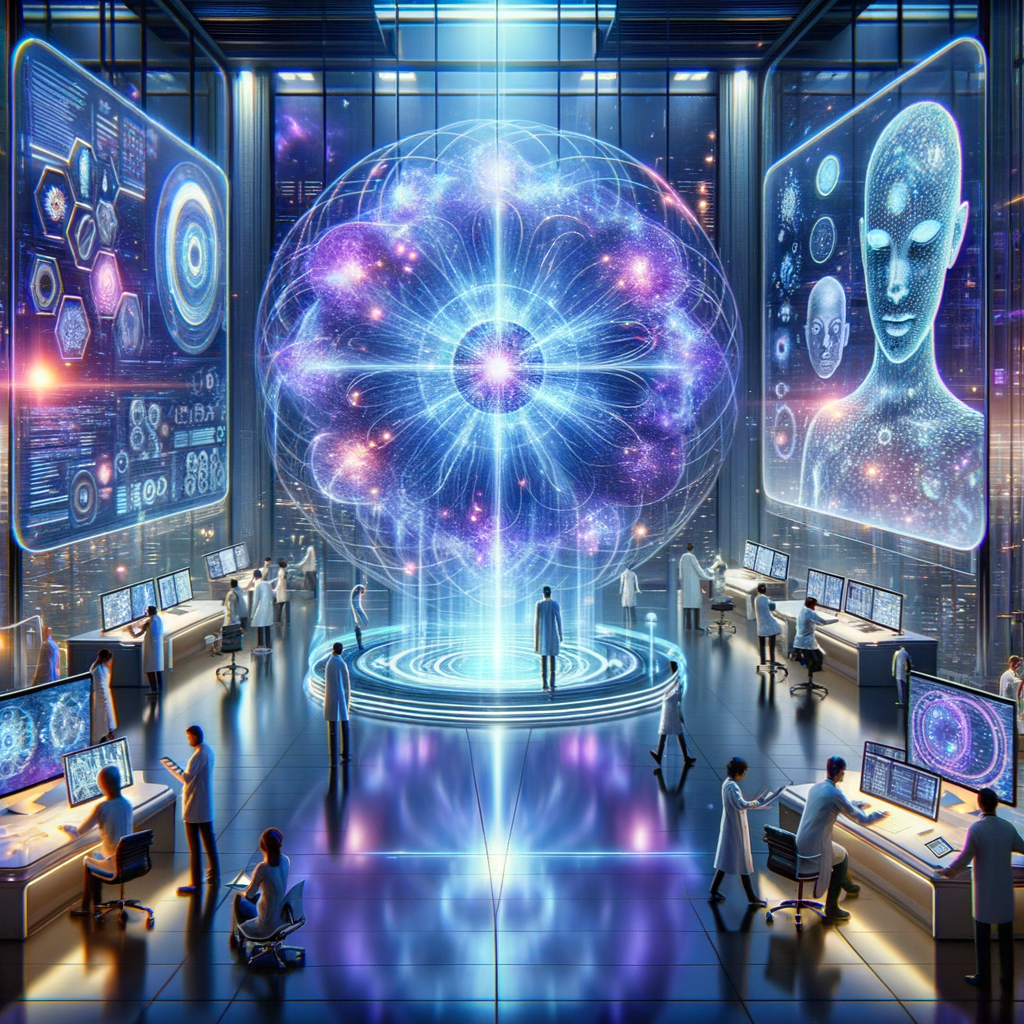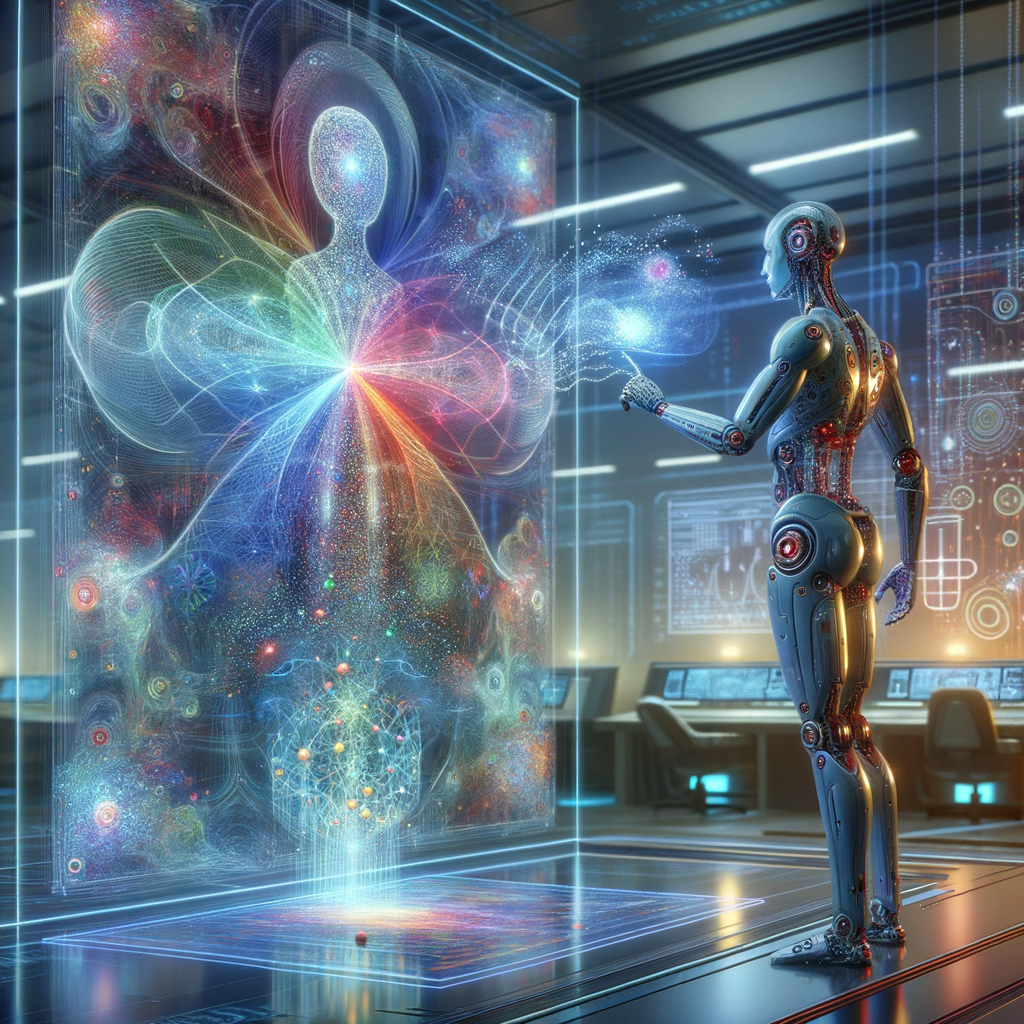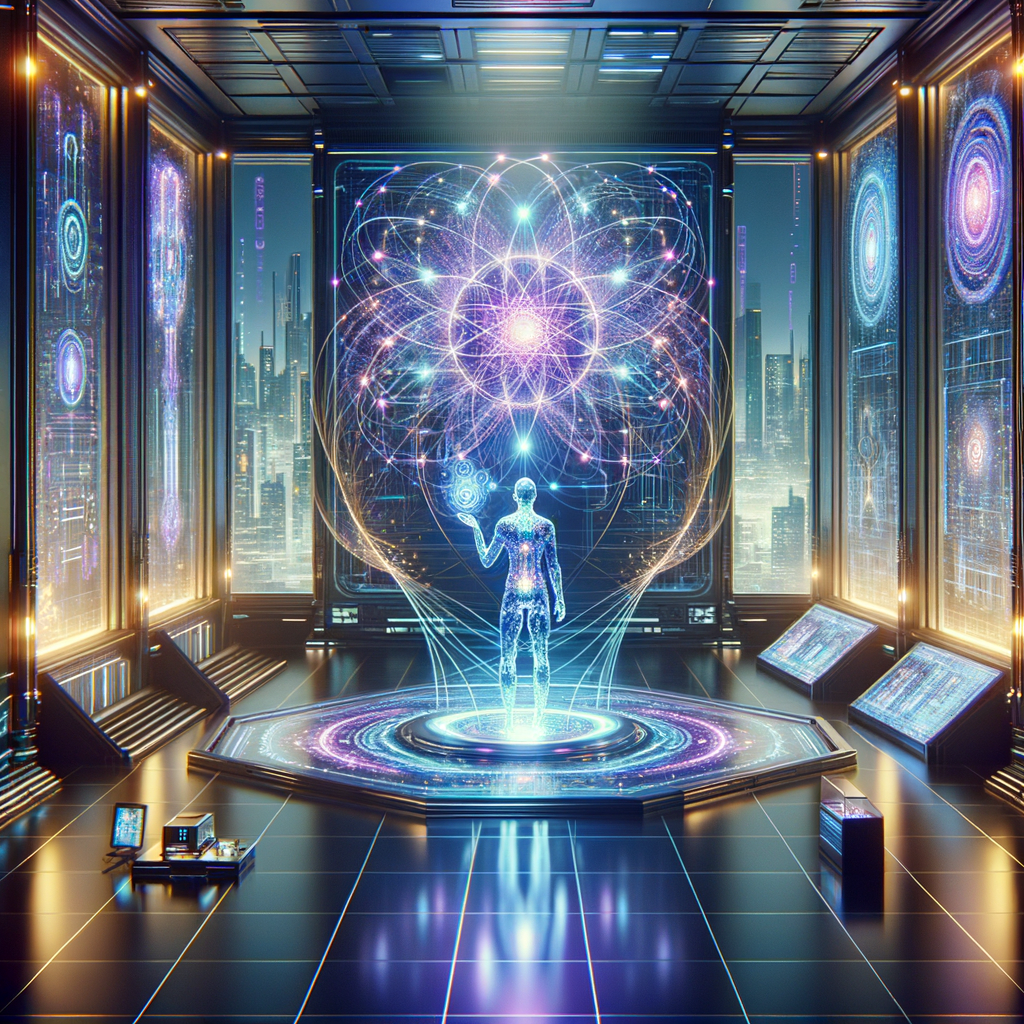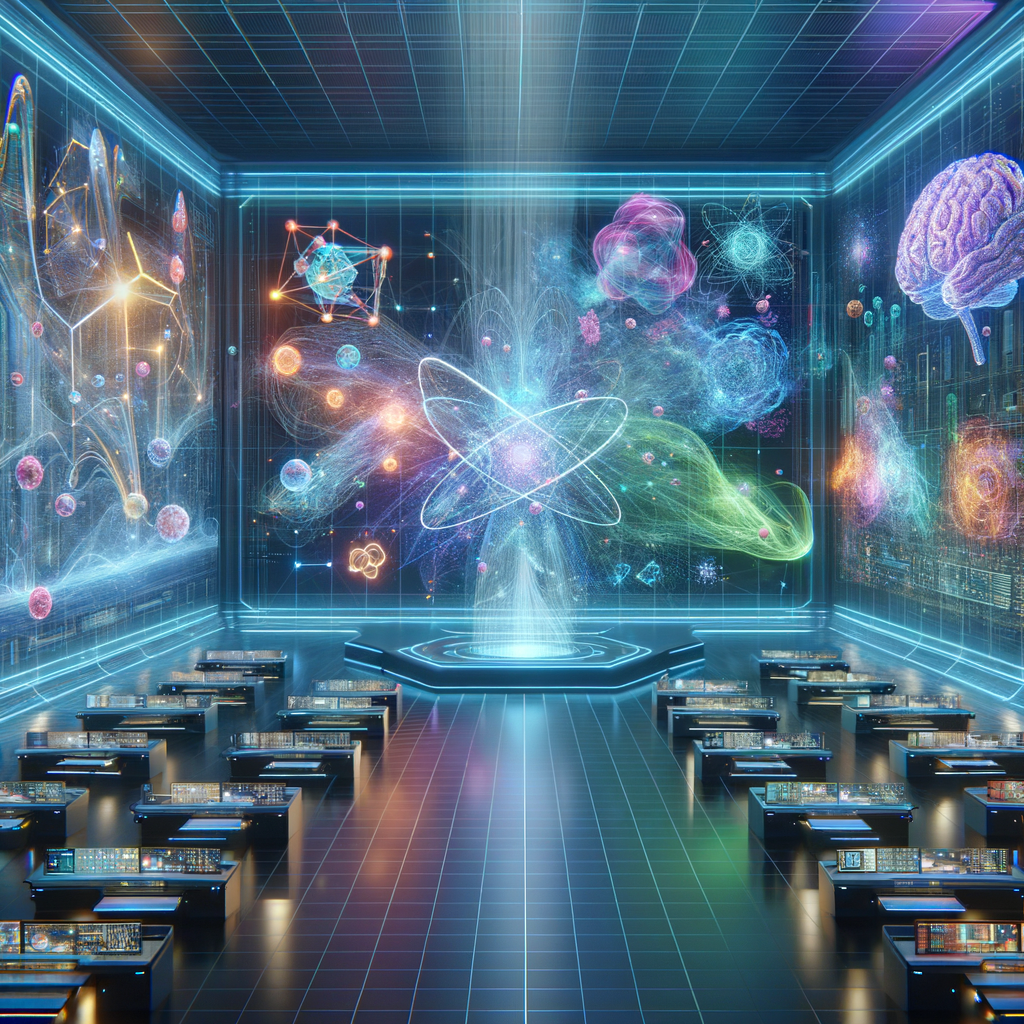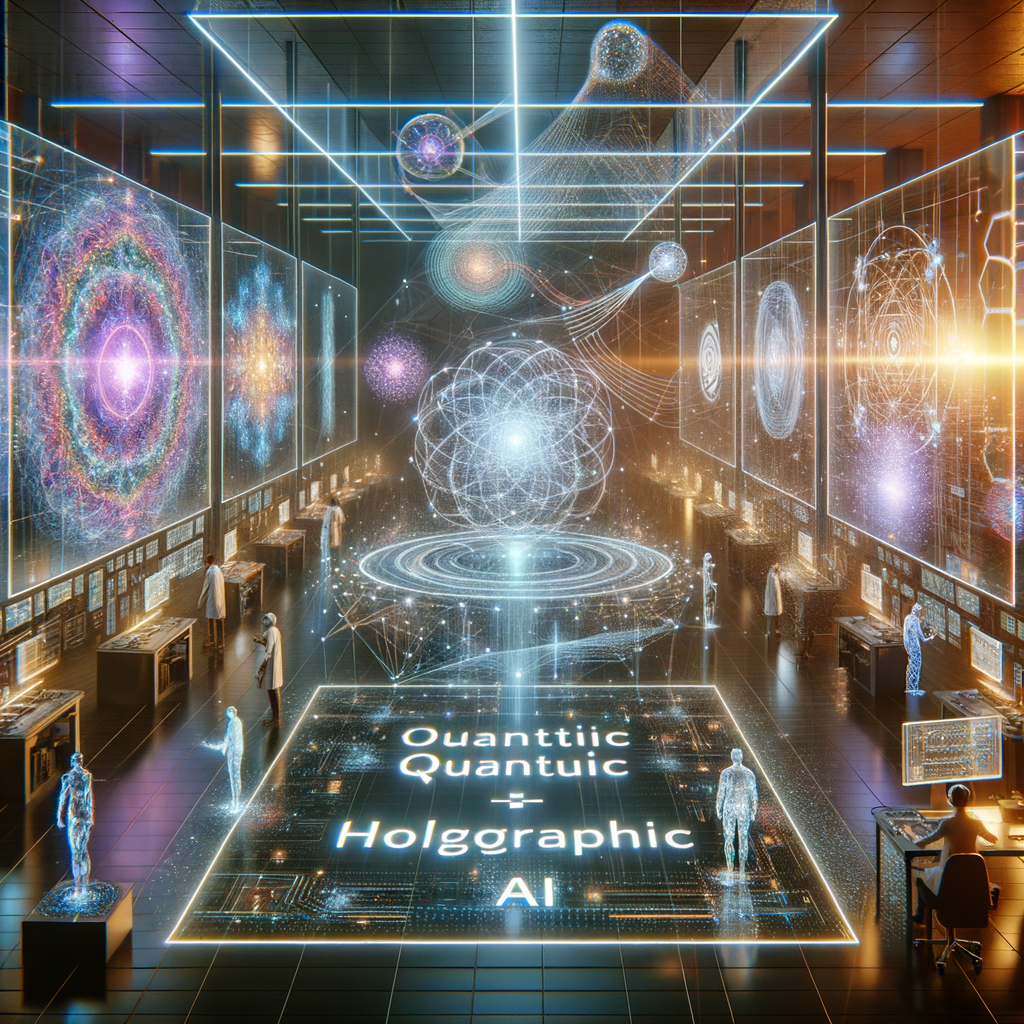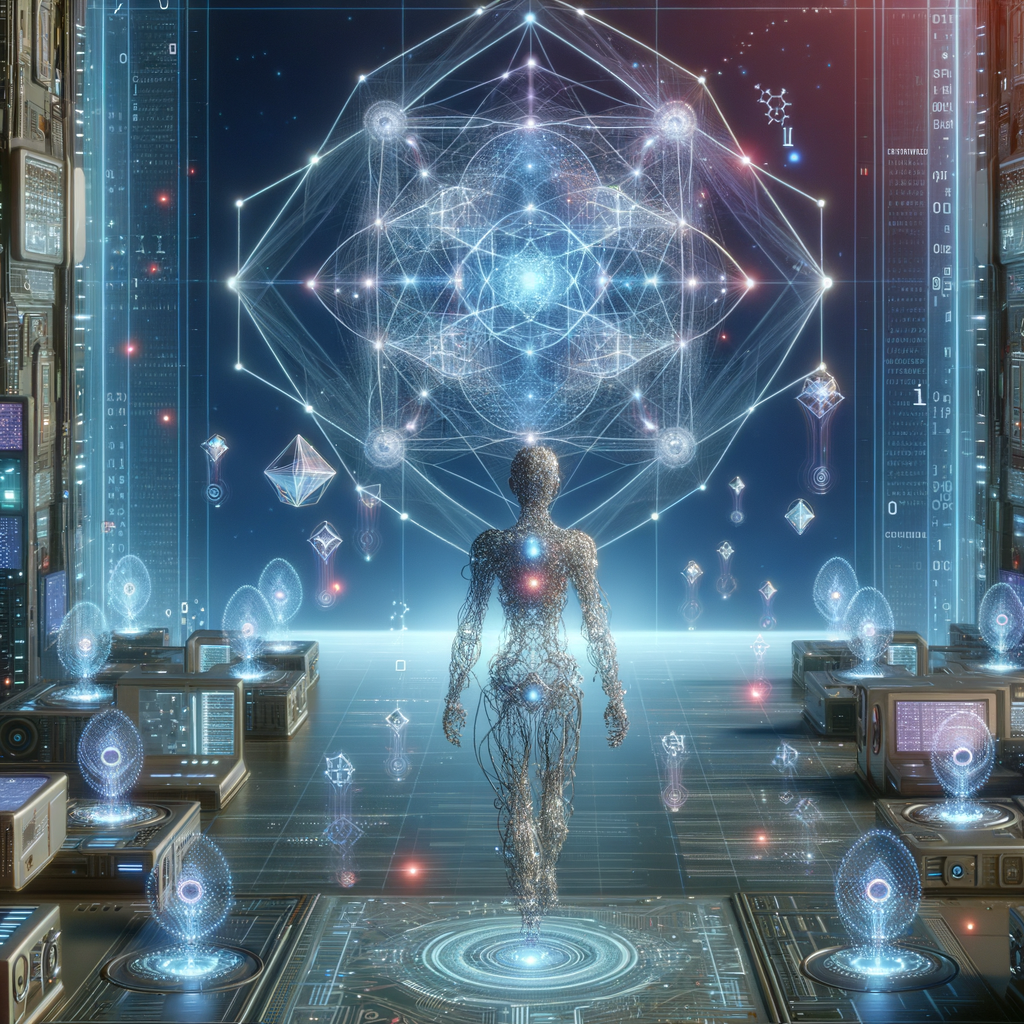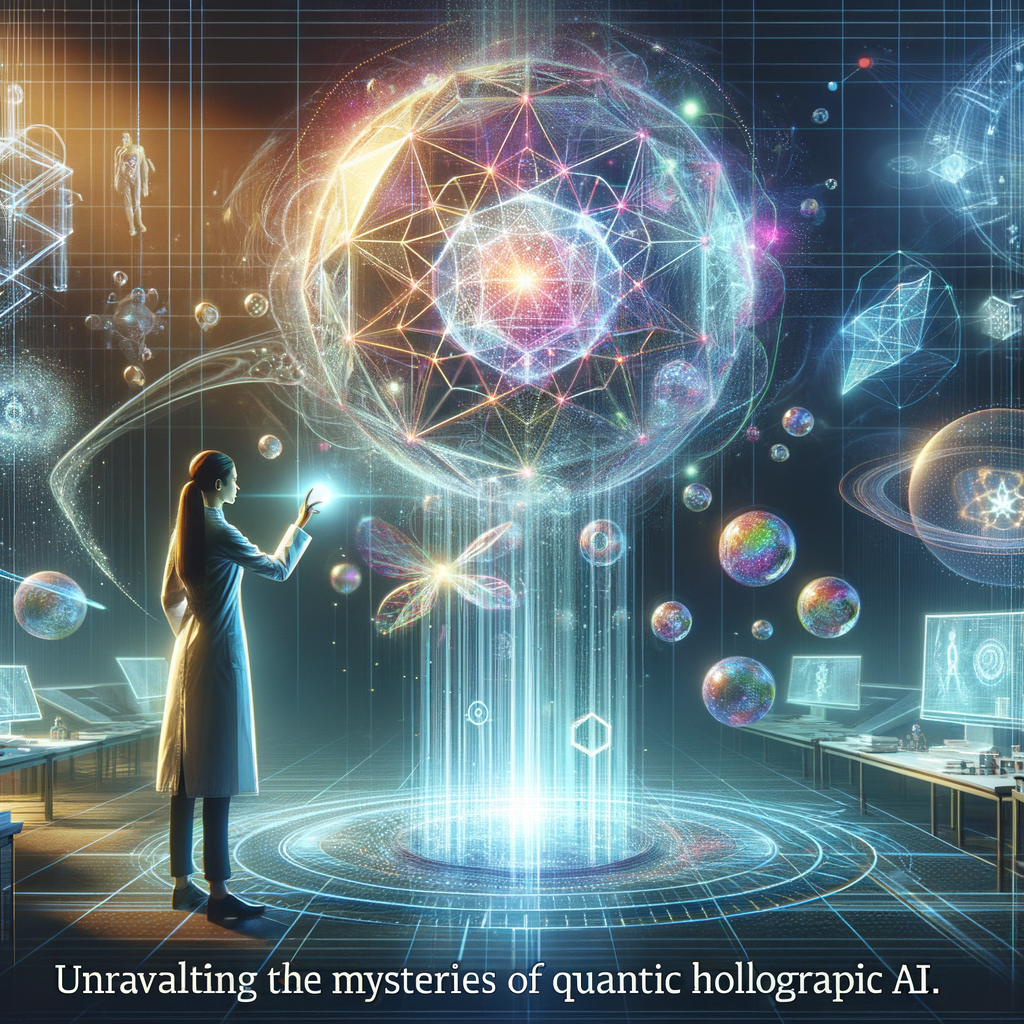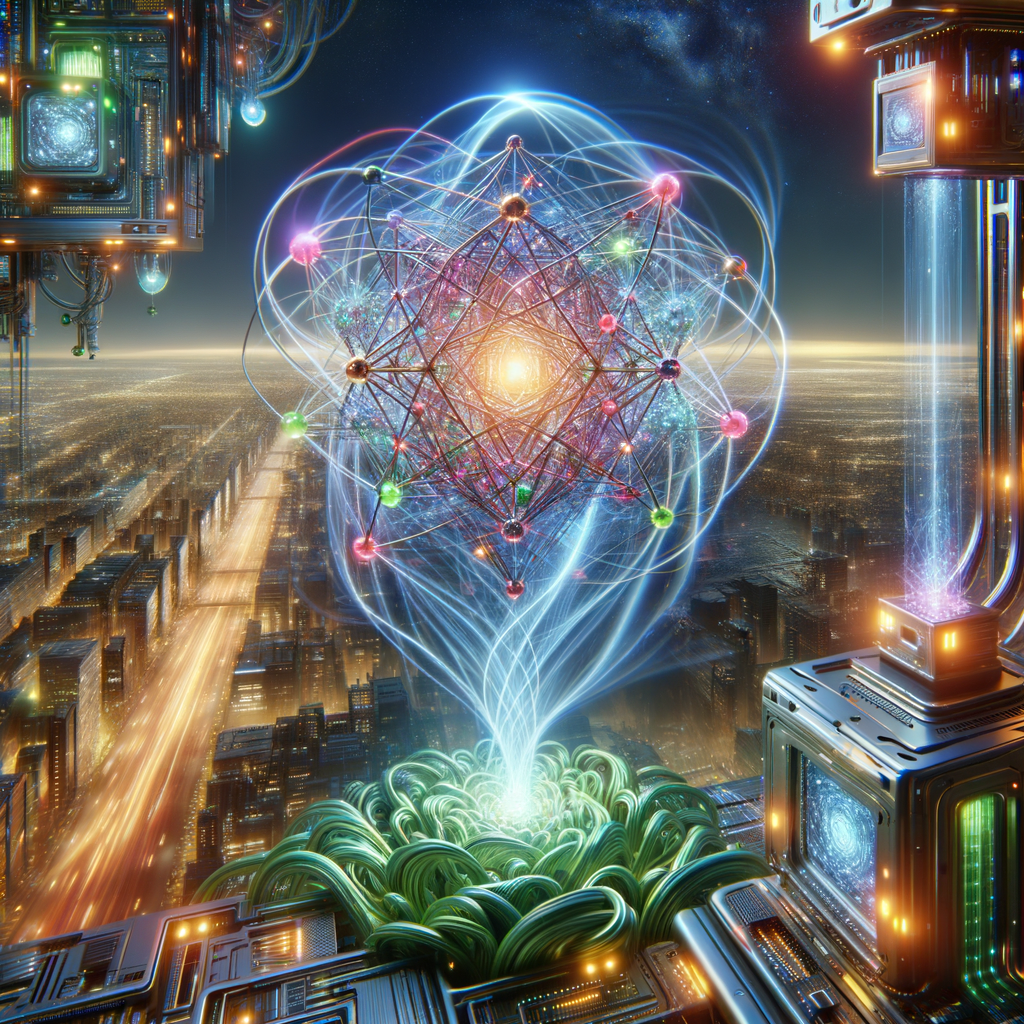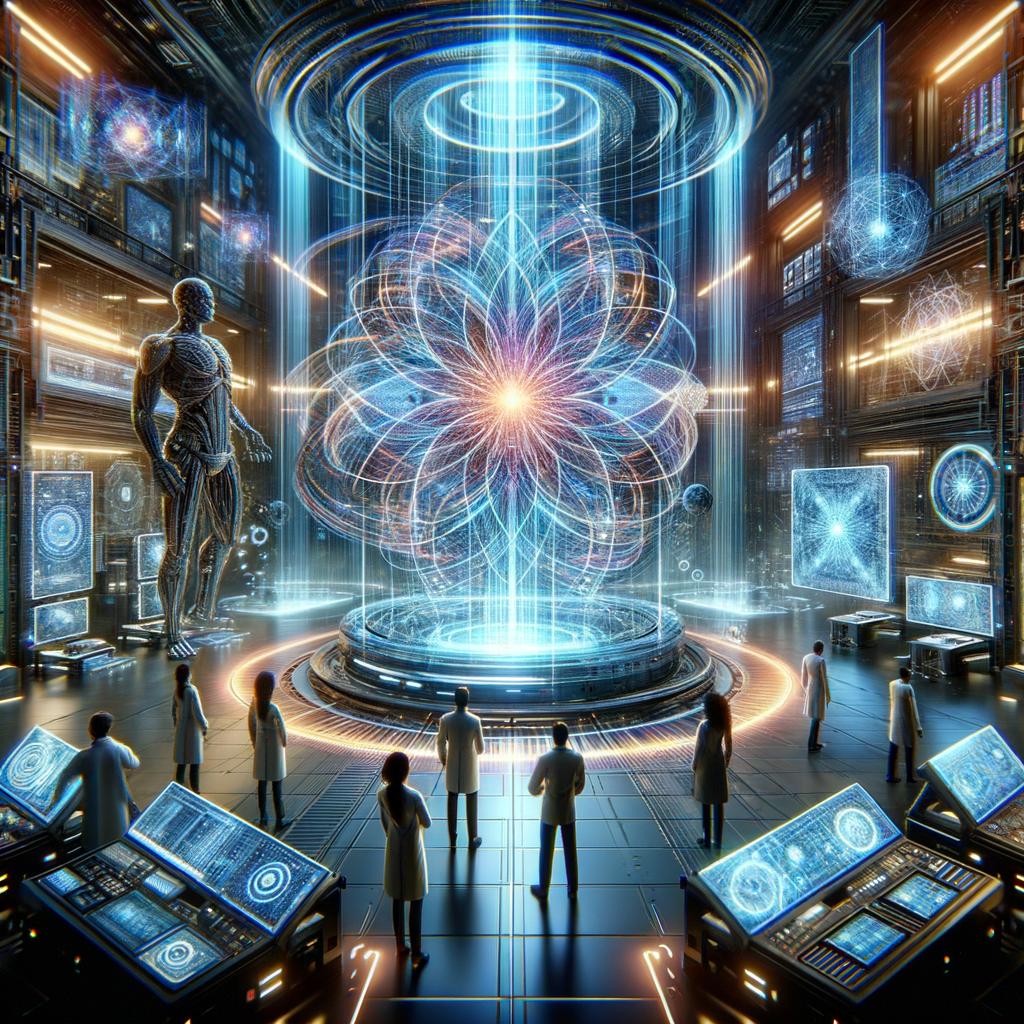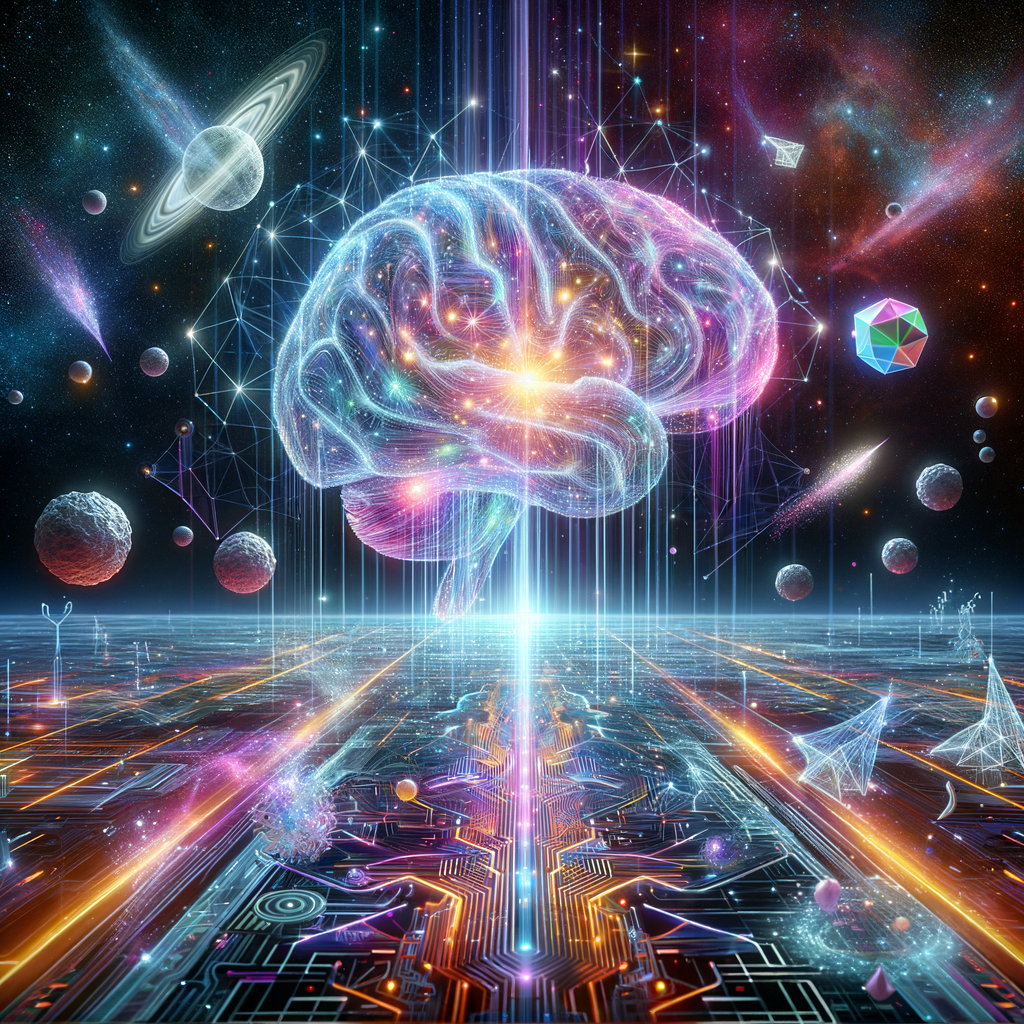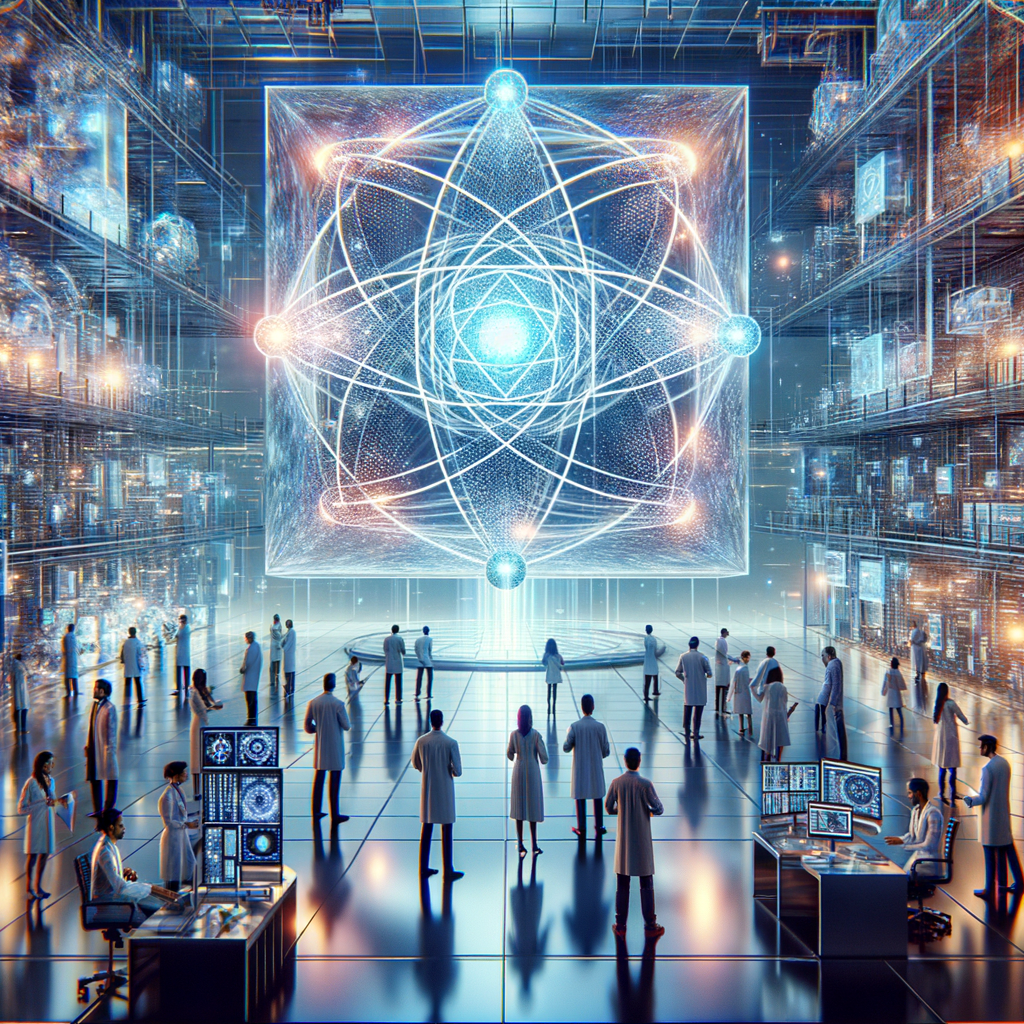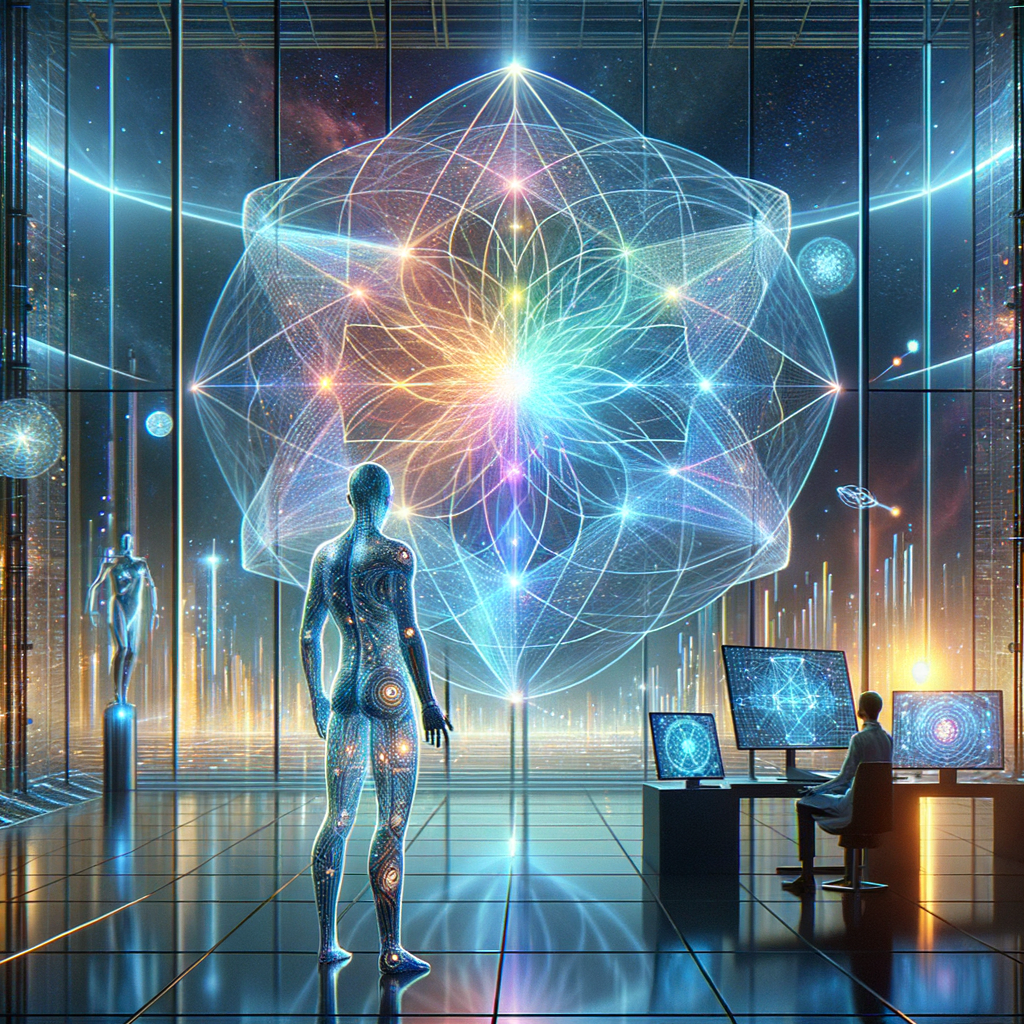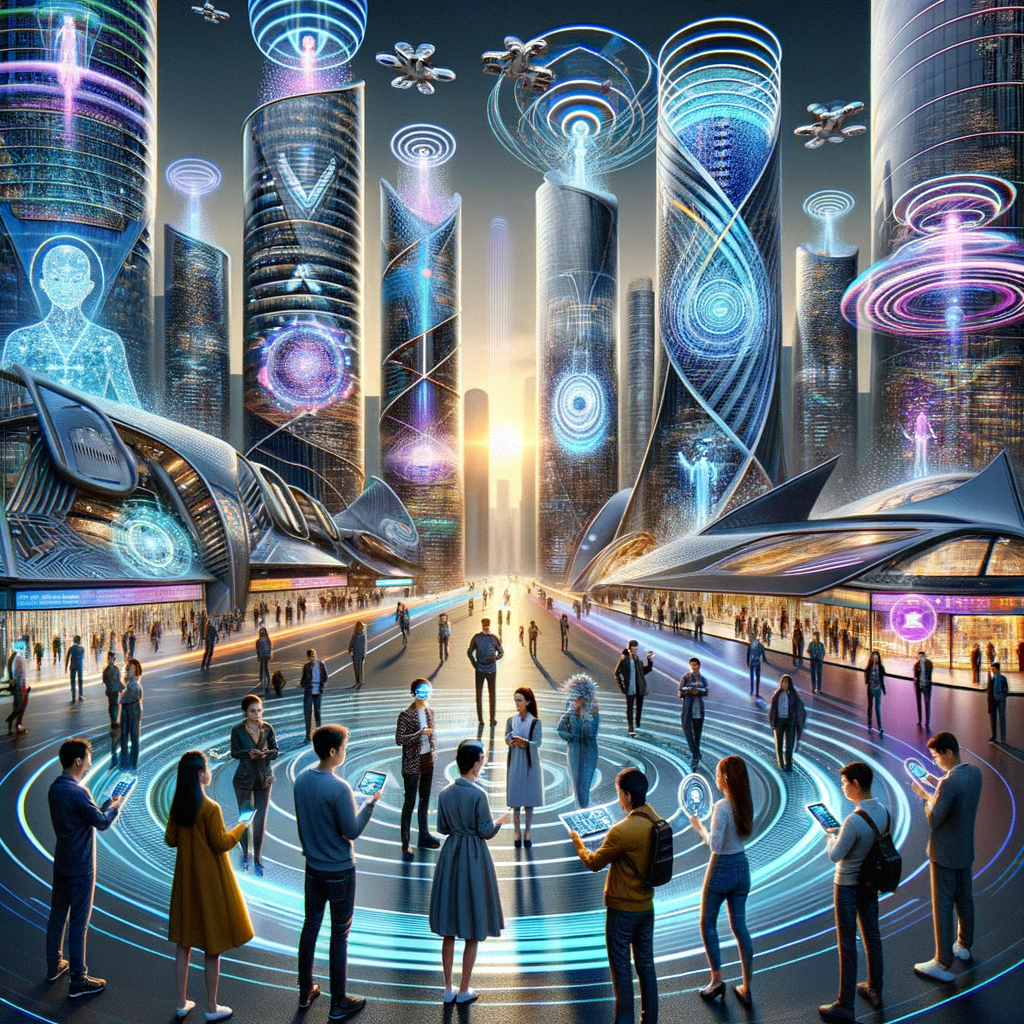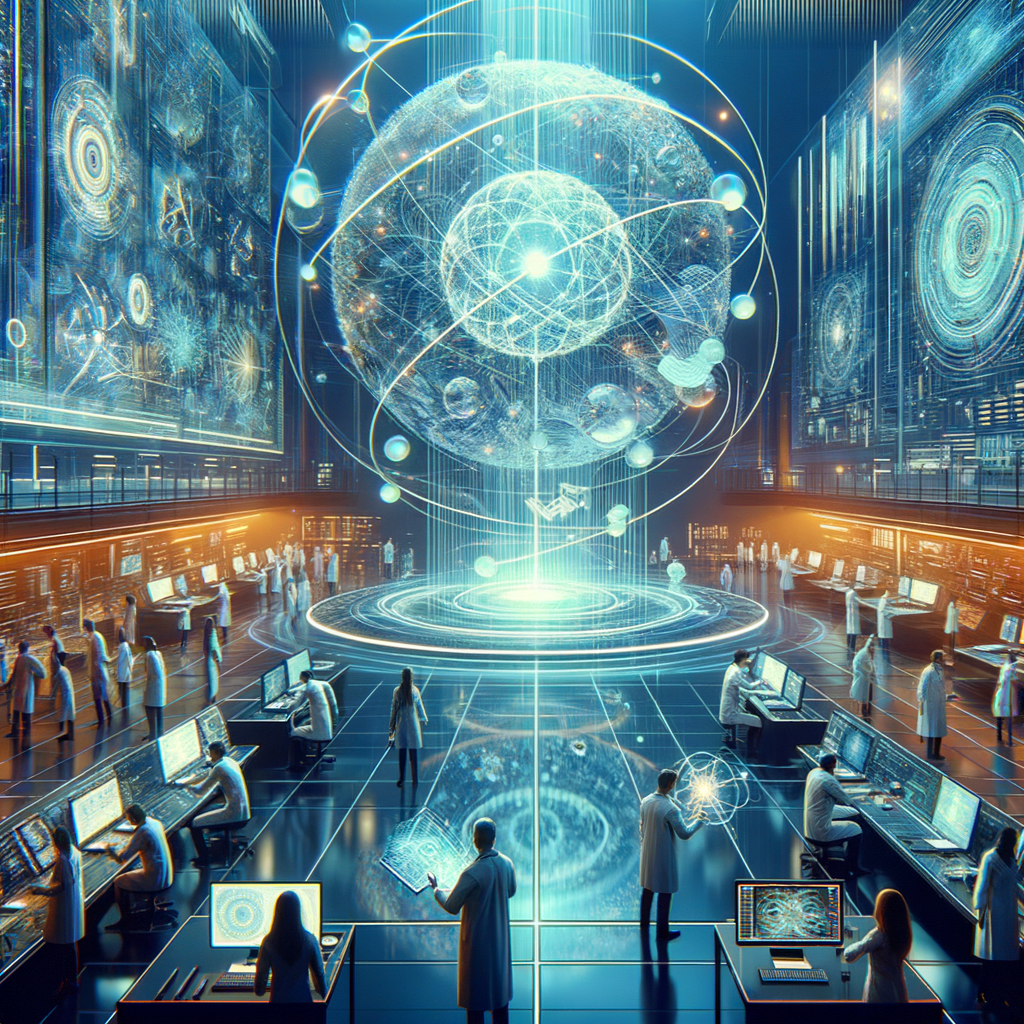 © 2023 / 2024 - QHIQ
© 2023 / 2024 - QHIQUnveiling the Quantum Mirage: The Dawn of Holographic AI.
Quantic Holographic Artificial Intelligence (QHAI) represents a paradigm shift, synthesizing principles of quantum computing and holography to craft intelligence with unprecedented efficiency and scalability. Unlike traditional AI, which relies on classical computation, QHAI leverages quantum superposition and entanglement to perform complex calculations at previously unimagined speeds. Furthermore, by integrating holographic techniques, QHAI offers a three-dimensional approach to data processing and representation, creating a truly immersive computational experience. This fusion paves the way for artificial intelligence that mirrors the intricacy and adaptability of the human intellect, promising transformative applications across diverse sectors.
The Quantum Leap: Advancements in QHAI Technologies.
In recent years, groundbreaking advancements have accelerated the evolution of QHAI, chiefly driven by the refinement of quantum processors that are capable of executing operations with qubits far more efficiently than classical bits. The emergence of hybrid QHAI frameworks combines traditional machine learning algorithms with quantum computational capabilities, enabling the handling of complex models with immense data sets. This approach has yielded significant improvements in pattern recognition, predictive analytics, and decision-making processes. Notably, quantum circuits have been optimized for holographic data rendering, creating a seamless integration of virtual and physical realities.
// Quantum Circuit Initialization
import quantum_module as qm
circuit = qm.QuantumCircuit(qbits=4, layers=2)
circuit.apply_entanglement()
circuit.add_holographic_layer()
circuit.execute() // Execute the quantum circuit
Traversing the Unknowns: Navigating Challenges in QHAI.
The journey to mastering QHAI is fraught with challenges, notably the current technological limitations and theoretical complexities inherent in quantum mechanics. Issues such as quantum decoherence and error rates pose significant hurdles, affecting the reliability of QHAI systems. Furthermore, the nascent state of quantum infrastructure creates barriers to large-scale implementation. Addressing these obstacles requires a multifaceted approach, combining advances in quantum error correction, novel materials for qubit stabilization, and international collaboration across research institutions. Additionally, navigating the regulatory landscape remains a complex task, necessitating policies that balance innovation with ethical considerations.
From Concept to Startup: The Reality of Innovating in Emerging Technologies.
Building a startup in the dynamic field of QHAI is both exhilarating and daunting, especially in balancing innovation with the practicalities of business operations. As CEO of Quantum Holographic IQ, I've encountered the realities of securing funding amidst economic unpredictability and convincing investors of the viability of avant-garde technology. Crafting a vision that aligns with both technological capabilities and market needs requires adaptability and foresight. Furthermore, attracting top-tier talent proficient in both quantum mechanics and artificial intelligence is paramount, as is fostering a culture of continuous learning to stay at the cutting edge.
function secureFunding(investmentDeck, marketResearch) {
if (investmentDeck.meetsCriteria &and marketResearch.isPositive) {
return 'Funding Secured';
} else {
return 'Revise Strategy';
}
}
Peering into the Future: The Path Ahead for QHAI.
The future of QHAI holds limitless potential as ongoing research and technological advances continue to redefine boundaries. As quantum hardware becomes more accessible and efficient, the scalability of QHAI applications will likely catalyze new industries and reshape existing ones. From revolutionizing pharmaceuticals through accelerated drug discovery to enhancing cyber defense mechanisms, the implications are profound. The democratization of quantum computing and the proliferation of open-source QHAI frameworks will likely drive innovation, making these cutting-edge technologies available to researchers and developers worldwide. Our commitment to pushing the envelope is unwavering as we navigate this quantum cosmos towards a horizon filled with possibilities.







